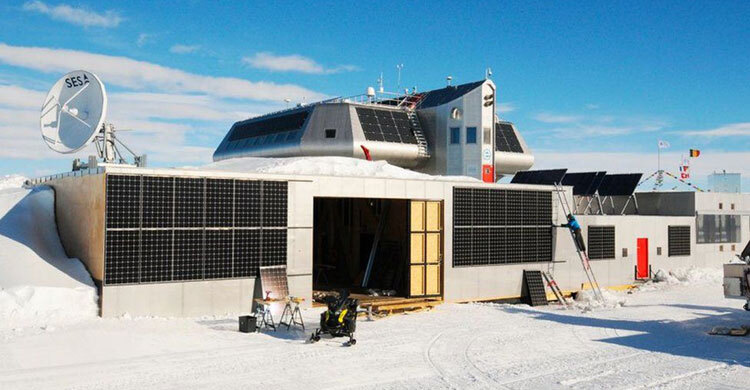Coronavirus pandemic: Antarctic outpost hit by Covid-19 outbreak

A Belgian scientific research station in Antarctica is dealing with an outbreak of Covid-19, despite workers being fully vaccinated and based in one of the world's remotest regions, reports BBC.
Since 14 December, at least 16 of the 25 workers at the Princess Elisabeth Polar Station have caught the virus.
Officials say cases remain mild so far.
"The situation isn't dramatic," Joseph Cheek, a project manager for the International Polar Foundation, told the BBC.
"While it has been an inconvenience to have to quarantine certain members of the staff who caught the virus, it hasn't significantly affected our work at the station overall," Mr Cheek said.
"All residents of the station were offered the opportunity to leave on a scheduled flight on 12 January. However, they all expressed their wish to stay and continue their work," he added.
The first positive test was recorded on 14 December, among a team who had arrived seven days earlier.
They and others who tested positive were placed in quarantine but the virus continued to circulate.
Staff arriving at the station must be vaccinated and tested for the virus.
There are two emergency doctors at the station and new arrivals to the outpost have been suspended until the virus dissipates.
Princess Elisabeth station is operated by the International Polar Foundation and went into service in 2009.
It isn't the first time research stations in Antarctica have been affected by a coronavirus outbreak.
Last year, a number of Chilean military personnel based at Bernardo O'Higgins research station were infected after sailors on a supply ship tested positive for the virus.







